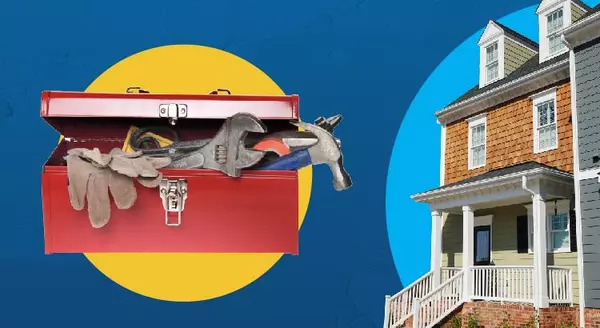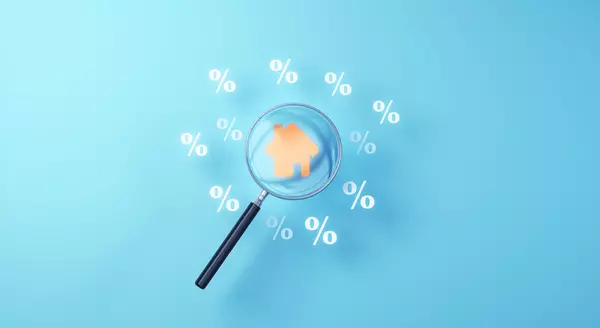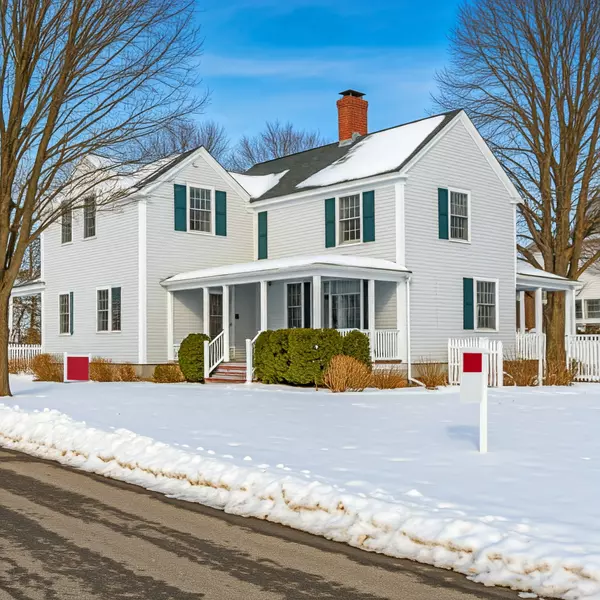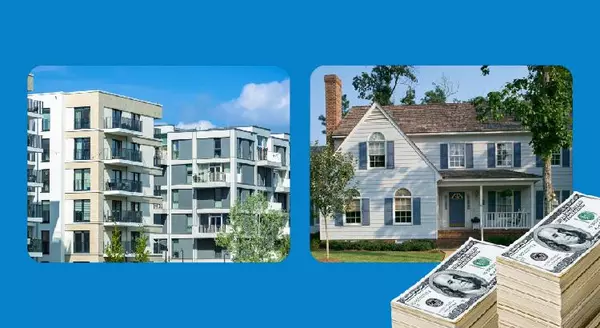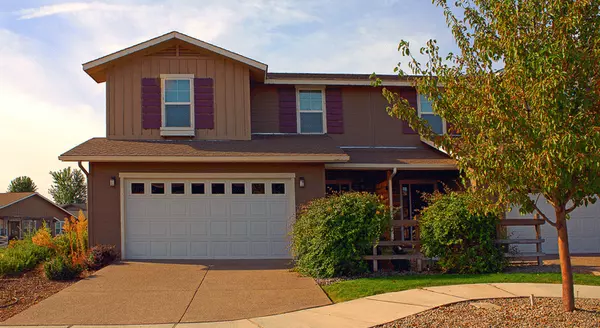Your Homebuying Adventure [INFOGRAPHIC]
![Your Homebuying Adventure [INFOGRAPHIC],KCM Crew](https://img.chime.me/image/fs/chimeblog/20231209/16/w600_original_6221d208-635e-4d90-b449-4a3870e28147-png.webp)
Some HighlightsHere are the key milestones you’ll encounter on your path to homeownership. From building your team, to house hunting, all the way to moving into your new home – it’s an exciting adventure.Your journey starts here. Connect with a local real estate agent so you have expert guidance each step of the way.
Read MoreWhy You Should Use a Real Estate Agent When You Buy a Home

If you’ve recently decided you’re ready to become a homeowner, chances are you’re trying to figure out what to do first. It can feel a bit overwhelming to know where to start, but the good news is you don’t have to navigate all of that alone.When it comes to buying a home, there are a lot of moving pieces. And that’s especially true in today’s housing market. The number of homes for sale is still low, and home prices and mortgage rates are still high. That combination can be tricky if you don’t have reliable expertise and a trusted advisor on your side. That’s why the best place to start is connecting with a local real estate agent.Agents Are the #1 Most Useful Source in the Buying ProcessThe latest annual report from the National Association of Realtors (NAR) finds recent homebuyers agree the #1 most useful source of information they had in the home buying process was a real estate agent. Let’s break down why.How an Agent Helps When You Buy a HomeWhen you think about a real estate agent, you may think of someone taking you on home showings and putting together the paperwork, but a great agent does so much more than that. It’s not just being the facilitator for your purchase, it’s being your guide through every step.The visual below shows some examples from that same NAR release of the many ways an agent adds value. It includes the percentage of homebuyers in that report who highlighted each of these benefits:Here’s a bit more context on how the survey results noted an agent continually helps buyers in these situations:Helped Buyer’s Understand the Process: Do you know the difference between an inspection and an appraisal, what each report tells you, and why they’re both important? Or that there are things you shouldn’t do after applying for a mortgage, like buying appliances or furniture? An agent knows all of these best practices and will share them with you along the way, so you don’t miss any key steps by the time you get to the closing table.Pointed Out Unnoticed Features or Faults with the Home: An agent also has a lot of experience evaluating homes. They’ve truly seen it all. They’ll be able to pinpoint some things you may not have noticed about the home that could help inform your decision or at least what repairs you ask for.Provided a Better List of Service Providers: In a real estate transaction, there are a lot of people involved. An agent has experience working with various professionals in your area, like home inspectors, and can help connect you with the pros you need for a successful experience.Negotiated Better Contract Terms and Price: Did something pop up in the home inspection or with the appraisal? An agent will help you re-negotiate as needed to get the best terms and price possible for you, so you feel confident with your big purchase.Improved Buyer’s Knowledge of the Search Area: Moving to a new town and you’re not familiar with the area, or you’re staying nearby, but don’t know which neighborhoods are most affordable? Either way, an agent knows the local area like the back of their hand and can help you find the perfect location for your needs.Expanded Buyer’s Search Area: And if you’re not finding anything you’re interested in within your initial search radius, an agent will know other neighborhoods nearby you should consider based on what you like, what amenities you want, and more.Bottom LineIf you’re looking to buy a home, don’t forget about the many ways an agent is essential to that process. Any hurdle that pops up, a negotiation that needs to take place, and more, your agent will know how to handle it while they make sure to minimize your stress along the way. Connect with a local real estate agent to tackle it together.
Read MoreHow To Turn Homeownership into a Side Hustle
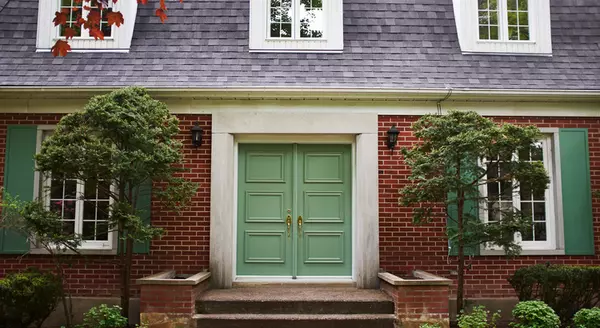
Does the rising cost of just about everything these days make your dream of owning your own home feel less within reach? According to Bankrate, many people are seeking additional income through side hustles, possibly to cope with those increasing expenses and save for a home. This trend is particularly popular with younger individuals who may be dealing with student loan debt (see graph below): Here are two strategies that can not only make homeownership more affordable in the short term, but turn it into a lucrative side hustle that can pay off down the road.Transforming the Challenge of a Fixer-Upper into an OpportunityOne thing you could do to help you break into homeownership is consider purchasing a fixer-upper. That’s a home that may be a bit less appealing and as a result has lingered on the market longer than normal. According to a recent article from U.S. News:“The current state of the housing market may have you expanding your options to try to find a home that you can afford. A fixer-upper that needs some updating and a little love can feel like a welcome alternative to move-in ready houses that go off the market before you can even take a tour.”By opting for a home that requires some work, you may see two big benefits. For starters, you may find it’s easier to find a home because you’re not looking for that perfect option. Plus, it may also help you enter the housing market at a lower price point. This strategy provides a more affordable way to become a homeowner while also offering the potential for future profits.Yes, the home may need a little elbow grease, but investing time and effort into gradually enhancing your house not only makes it a home but also increases its future market value. So, while you enjoy the satisfaction of turning a house into a home, you're also building equity that can be unlocked when it's time to sell.Renting Out a Portion of Your Home To Make It More AffordableAnother savvy strategy is to purchase a home with the upfront intention of renting out a portion of it. According to a recent press release from Zillow, renting out a part of their home is already very important for most young homebuyers (see graph below): This approach serves a strong purpose. As Manny Garcia, Senior Population Scientist at Zillow, says:“For those first-time buyers navigating the ‘side hustle culture,’ where a regular 9-to-5 might not quite cut it for homeownership dreams, rental income can step in to help . . .”Basically, it can help you afford your monthly mortgage payments. So if you’re open to it, renting out a portion of your home not only helps with affordability, but it also positions you as an investor and turns your home into a source of income.Bottom LineIn the face of today’s affordability challenges, both of these strategies offer more attainable paths to homeownership, especially for younger buyers. If you want to discuss these options and see how they might play out for you in your local market, connect with a trusted real estate agent.
Read MoreWhen You Sell Your House, Where Do You Plan To Go?

If you’re thinking about selling your house, you may have heard the supply of homes for sale is still low, and that means your house should stand out to buyers who are craving more options. But you may also be wondering, once you sell, how does the current supply impact your own move? And, will you be able to find a home you want to buy with inventory this low?One thing that can help you find your next home is exploring all your options, including both homes that have been lived in before as well as newly built ones. Let’s look at the benefits of each one.The Pros of Newly Built HomesFirst, let’s look at the advantages of purchasing a newly constructed home. With a brand-new home, you’ll be able to:Create your perfect home. If you build a home from the ground up, you’ll have the option to select the custom features you want, including appliances, finishes, landscaping, layout, and more.Cash-in on energy efficiency. When building a home, you can choose energy-efficient options to help lower your utility costs and reduce your carbon footprint.Minimize the need for repairs. Many builders offer a warranty, so you’ll have peace of mind on unlikely repairs. Plus, you won’t have as many little projects to tackle.Have brand new everything. Another perk of a new home is that nothing in the house is used. It’s all brand new and uniquely yours from day one.The Pros of Existing HomesNow, let’s compare that to the perks that come with buying an existing home. With a pre-existing home, you can:Explore a wider variety of home styles and floorplans. With decades of homes to choose from, you’ll have a broader range of floorplans and designs available.Join an established neighborhood. Existing homes give you the option to get to know the neighborhood, community, or traffic patterns before you commit.Enjoy mature trees and landscaping. Established neighborhoods also have more developed landscaping and trees, which can give you additional privacy and curb appeal.Appreciate that lived-in charm. The character of older homes is hard to reproduce. If you value timeless craftsmanship or design elements, you may prefer an existing home.The choice is yours. When you start your search for the perfect home, remember that you can go either route – you just need to decide which features and benefits are most important to you. As an article from The Mortgage Reports says:“When building, you gain more freedom to tailor the design, materials, and features, but it demands more time and involvement. Conversely, buying an established home offers immediate occupancy . . . yet may require compromises. Your choice should align with your budget, timeline, customization preferences, and the local real estate landscape.”Either way, working with a local real estate agent throughout the process is mission-critical to your success. They'll help you explore all of your options based on what matters most to you in your next home. Together, you can find the home that’s right for you.Bottom LineIf you have questions about the options in your area, connect with a local real estate agent to discuss what's available and what's right for you. That way you’ll be ready to make your next move with confidence.
Read MoreExperts Project Home Prices Will Rise over the Next 5 Years

Even with so much data showing home prices are actually rising in most of the country, there are still a lot of people who worry there will be another price crash in the immediate future. In fact, a recent survey from Fannie Mae shows that 23% of consumers think prices will fall over the next 12 months. That’s nearly one in four people who are dealing with that fear – maybe you’re one of them.To help ease that concern, here’s what the experts say will happen with home prices not just next year, but over the next five years.Experts Project Ongoing AppreciationWhile seeing a small handful of expert opinions may not be enough to change your mind, hopefully, a larger group of experts will reassure you. Here’s that larger group.The Home Price Expectation Survey (HPES) from Pulsenomics is a great resource to show what experts forecast for home prices over a five-year period. It includes projections from over 100 economists, investment strategists, and housing market analysts. And the results from the latest quarterly release show home prices are expected to go up every year through 2027 (see graph below): And while the projected increase in 2024 isn’t as large as 2023, remember home price appreciation is cumulative. In other words, if these experts are correct after your home’s value rises by 3.32% this year, it should go up by another 2.17% next year.If you’re worried home prices are going to fall, here’s the big takeaway. Even though prices vary by local area, experts project they’ll continue to rise across the country for years to come at a pace that’s more normal for the market.What Does This Mean for You?If you’re not convinced yet, maybe these numbers will get your attention. They show how a typical home’s value could change over the next few years using the expert projections from the HPES. Check out the graph below: In this example, let’s say you bought a $400,000 home at the beginning of this year. If you factor in the forecast from the HPES, you could potentially accumulate more than $71,000 in household wealth over the next five years.Bottom LineIf you’re someone who’s worried home prices are going to fall, rest assured a lot of experts say it’s just the opposite – nationally, home prices will continue to climb not just next year, but for years to come. If you have any questions or concerns about what’s next for home prices in your local area, connect with a real estate agent.
Read More3 Reasons To Sell Your House Before the New Year [INFOGRAPHIC]
![3 Reasons To Sell Your House Before the New Year [INFOGRAPHIC],KCM Crew](https://img.chime.me/image/fs/chimeblog/20231202/16/w600_original_cfc0e864-471f-4330-a8f6-5e5292fa7858-png.webp)
Some HighlightsHere are a few reasons you may not want to hold off until the new year to sell your house. Buyers looking right now are highly motivated, the supply of homes for sale is still low, and you may find buyers are more flexible with showings this time of year.Reach out to a real estate agent to determine if selling your house now is the right move for you.
Read MoreIs Owning a Home Still the American Dream for Younger Buyers?
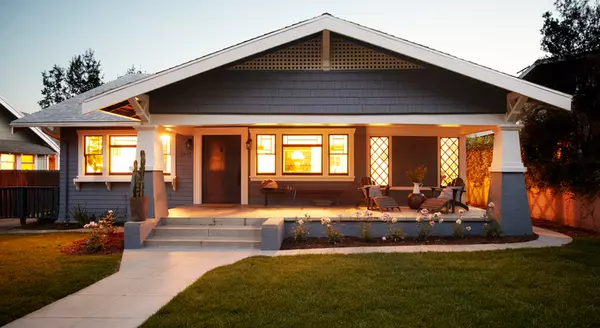
Everyone has their own idea of the American Dream, and it's different for each person. But, in a recent survey by Bankrate, people were asked about the achievements they believe represent the American Dream the most. The answers show that owning a home still claims the #1 spot for many Americans today (see graph below): In fact, according to the graph, owning a home is more important to people than retiring, having a successful career, or even getting a college degree. But is the dream of homeownership still alive for younger generations?A recent survey by 1000watt dives into how the two generations many people believed would be the renter generations (Gen Z and millennials) feel about homeownership. Specifically, it asks if they want to buy a home in the future. The resounding answer is yes (see graph below):While there are plenty of reasons why someone might prefer homeownership to renting, the same 1000watt survey shows, that for 63% of Gen Z and millennials, it’s that your place doesn’t feel like “home” unless you own it – maybe you feel the same way.That emotional draw is further emphasized when you look at the reasons why Gen Z and millennials want to become homeowners. For all the financial benefits homeownership provides, in most cases it’s about the lifestyle or emotional benefits (see graph below): What Does This Mean for You?If you’re a part of Gen Z or are a millennial and you’re ready, willing, and able to buy a home, you’ll want a great real estate agent by your side. Their experience and expertise in the local housing market will help you overcome today’s high mortgage rates, low inventory, and rising home prices to find your first home and turn your dream into a reality.Working with a local real estate agent to find your dream home is the key to unlocking the American Dream.Bottom LineBuying a home is a big, important decision that represents the heart of the American Dream. If you want to accomplish your goal, begin by talking to a local real estate expert to start the process today.
Read MoreWhy the Economy Won’t Tank the Housing Market

If you’re worried about a coming recession, you’re not alone. Over the past couple of years, there’s been a lot of recession talk. And many people worry, if we do have one, it would cause the unemployment rate to skyrocket. Some even fear that a spike in unemployment would lead to a rash of foreclosures similar to what happened 15 years ago.However, the latest Economic Forecasting Survey from the Wall Street Journal (WSJ) reveals that, for the first time in over a year, less than half (48%) of economists believe a recession will actually occur within the next year:“Economists are turning optimistic on the U.S. economy . . . economists lowered the probability of a recession within the next year, from 54% on average in July to a more optimistic 48%. That is the first time they have put the probability below 50% since the middle of last year.”If over half of the experts no longer expect a recession within the next year, you might naturally think those same experts also don’t expect the unemployment rate to jump way up – and you’d be right. The graph below uses data from that same WSJ survey to show exactly what the economists project for the unemployment rate over the next three years (see graph below): If those expert projections are correct, more people will lose their jobs in the upcoming year. And job losses of any kind are devastating for those people and their loved ones.However, the question here is: will there be enough job losses to cause a wave of foreclosures that will crash the housing market? Based on historical context from Macrotrends and the Bureau of Labor Statistics (BLS), the answer is no. That’s because the unemployment rate is currently near all-time lows (see graph below): As the orange bar in the graph shows, the average unemployment rate dating back to 1948 is 5.7%. The red bar shows, the last time the housing market crashed, in the immediate aftermath of the 2008 financial crisis, the average unemployment rate was up to 8.3%. Both of those bars are much higher than the unemployment rate today (shown in the blue bar).Moving forward, projections show the unemployment rate is likely to stay beneath the 75-year average. And that means we won’t see a wave of foreclosures that would severely impact the housing market.Bottom LineMost economists no longer expect a recession to occur in the next 12 months. That’s why they also don’t expect a dramatic rise in the unemployment rate that would lead to a rash of foreclosures and another housing market crash. If you have questions about unemployment and its impact on the housing market, connect with a real estate professional.
Read MoreAre the Top 3 Housing Market Questions on Your Mind?
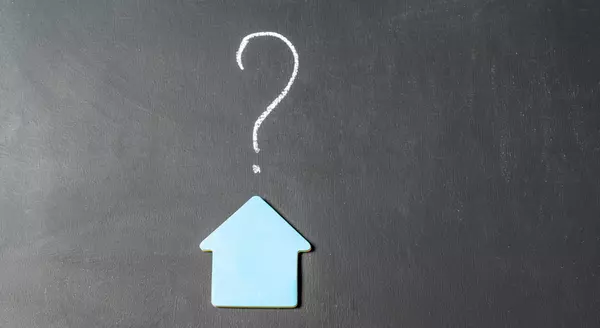
When it comes to what’s happening in the housing market, there’s a lot of confusion going around right now. You may hear one thing in conversation with your friends, see something totally different on the news, and read something on social media that contradicts both of those thoughts. And, if you’re thinking about making a move, that can leave you with a lot of lingering questions. That’s where a trusted local real estate agent comes in.Here are the top 3 questions people are asking about today’s housing market, and the data to help answer them.1. What’s Next for Mortgage Rates?Mortgage rates are higher than they’ve been in recent years. And, if you’re looking to buy a home, that impacts how much you can afford. That’s why so many buyers want to know what’s ahead for mortgage rates. The answer to that question is: no one can say for certain, but here’s what we know based on historical trends.There’s a long-standing relationship between mortgage rates and inflation. Basically, when inflation is high, mortgage rates tend to follow suit. Over the past year, inflation was up, so mortgage rates were as well. But inflation is easing now. And this is why the Federal Reserve has recently paused their federal funds rate hikes, which means many experts believe mortgage rates will begin to come down.And in some ways, we’ve started to see hints of slightly lower mortgage rates in recent weeks. But it’s certainly been volatile and will likely continue to be that way going into next year. Some ongoing variation is to be expected, but the anticipation is, that in 2024, we’ll see a downward trend. As Aziz Sunderji, Strategist at Home Economics, says:“The bottom line is that interest rates are likely to be lower-perhaps even lower than many optimists think - in the weeks and months to come.”2. Where Are Home Prices Headed?While there’s been a lot of concern prices would come crashing down this year, data shows that didn’t happen. In fact, home prices are rising in most of the nation. Experts say that trend will continue, just at a slower pace that’s much more normal for the housing market – and that’s a good thing.To help show just how confident experts are in this continued appreciation, take a look at the Home Price Expectation Survey from Pulsenomics. It’s a survey of a national panel of over 100 economists, real estate experts, and investment and market strategists. As the graph below shows, the consensus is, that prices will keep climbing next year, and in the years to come. 3. Is a Recession Around the Corner?While recession talk has been a common thing over the past few years, there’s good news on that front.The Wall Street Journal (WSJ) polls experts on this topic regularly. And last year at this time, most of them thought a recession would have happened by now. But as experts look at all the leading indicators today, they’re changing their minds and saying a recession is getting less and less likely. The latest results show that more experts now think we’re not headed for another recession (see chart below): This is big news for the housing market. And while the 48% to 52% split may seem close to half and half, the key thing to focus on is that the majority of these experts think we’ve avoided a recession already.Bottom LineThe big takeaway? The data shows there isn’t cause for concern – there are actually more signs of hope. Reach out to a local real estate agent to talk more about the housing market questions on your mind heading into the new year.
Read MoreIs Wall Street Buying Up All the Homes in America?

If you’re thinking about buying a home, you may find yourself interested in the latest real estate headlines so you can have a pulse on all of the things that could impact your decision. If that’s the case, you’ve probably heard mention of investors, and wondered how they’re impacting the housing market right now. That could leave you asking yourself questions like:How many homes do investors own?Are institutional investors, like large Wall Street Firms, really buying up so many homes that the average person can’t find one?To answer those questions, here’s the real story of what’s happening based on the data. Let’s start with establishing how many single-family homes (SFHs) there are and what portion of those are rentals owned by investors. According to SFR Investor, which studies the single-family rental market in the United States, there are eighty-two million single-family homes in this country. But how many of them are actually rentals?According to data shared in a recent post, sixty-eight million (82.93%) of those homes are owner-occupied – meaning the person who owns the home lives in it. If you subtract that sixty-eight million from the total number of single-family homes (82 million), that leaves just about fourteen million homes left that are single-family rentals (SFRs).Do institutional investors own all of those remaining fourteen million homes? Not even close. Let’s take it one step further. There are four categories of investors:The mom & pop investor who owns between 1-9 SFRsThe regional investor who owns between 10-99 SFRsSmaller national investor who owns between 100-999 SFRsThe institutional investor who owns over 1,000 SFRsThese categories show that not all investors are large institutional investors. To help convey that even more clearly, here are the percentages of rental homes owned by each type of investor (see chart below): As you can see in the chart, despite what the news and social media would have you believe, the green shows the vast majority are not owned by large institutional investors. Instead, most are owned by small mom & pop investors, like your friends and neighbors.What’s actually happening is, that there are people out there, just like you, who believe in homeownership, and they view buying a home (or a second home) as an investment. Maybe they saw an opportunity to buy a second home over the last few years to use it as a rental and generate additional income. Or maybe they just decided to keep their first house rather than sell it when they moved up.So, don’t believe everything you read or hear about institutional investors. They aren’t buying up all the homes and making it impossible for the average person to buy. That’s just not what the numbers show. Institutional investors are actually the smallest piece of the pie chart.Bottom LineWhile it’s true that institutional investors are a player in the single-family rental marketplace, they’re not buying up all of the houses on the market. If you have other questions about things you’re hearing about the housing market, connect with a trusted real estate professional so you have an expert to give you the context you need.
Read MoreWhy Homeowners Feel Thankful for Their Homes [INFOGRAPHIC]
![Why Homeowners Feel Thankful for Their Homes [INFOGRAPHIC],KCM Crew](https://img.chime.me/image/fs/chimeblog/20231125/16/w600_original_75621079-2b96-4b9a-a043-69f031d34738-png.webp)
Some HighlightsHere are three reasons why homeowners feel thankful for their homes. First, it’s a safe place that can give you a greater sense of comfort, safety, and security.Second, it gives you freedom of expression. From the color of the paint to the art on the walls, you can express your style and your personality.Third, it provides a sense of community. Owning your home helps you build lasting friendships with neighbors and connects you to your community. If you're thinking of buying a home and want to hear more about the potential benefits, talk with a local real estate agent.
Read MoreWhy Homeowners Are Thankful They Own

Countless people have set out on the exciting journey of homeownership. Ask around and you’ll find the vast majority are thankful they took the leap and bought a home. But why? It’s because of the many emotional and lifestyle benefits that come with being a homeowner.So, if you’re trying to decide if you want to rent or buy a home, here are just a few of the many benefits you could look forward to if you buy.It’s a Safe HavenOwning a home goes beyond just having a roof over your head. It provides a sense of security and safety. In fact, in a survey from Fannie Mae, respondents say “having a sense of privacy and security” is one of the top reasons homeownership is preferred to renting. And in a different Fannie Mae survey, “living in a place where you and your family feels safe” is another one of the top benefits of homeownership.Your home is a place where you can truly relax and unwind. Knowing that you have a sanctuary to return to at the end of the day is a great source of comfort.It’s a Canvas for Self-ExpressionFor many homeowners, their home is a reflection of who they are. The National Association of Realtors (NAR), says:“The home is yours. You can decorate any way you want and choose the types of upgrades and new amenities that appeal to your lifestyle.”From the color of the front door to the art hanging on the walls, every detail contributes to a unique expression of personal style. Put simply, owning a home gives you the freedom to make changes and improvements that resonate with your personality.It Helps You Feel More Connected to the CommunityStability is another cornerstone of homeownership. The longer you stay put, the more emotionally connected you are to your community. For example, if your neighborhood does cook-outs, block parties, or other events, you’ll feel more engaged and probably build meaningful relationships with those around you. As NAR states:“Remaining in one neighborhood for several years allows you and your family time to build long-lasting relationships within the community.”The sense of community where you can make life-long friends helps give you more stability and predictability than you’d have if you move each time a rental lease renews.Its Where Lifelong Memories Are MadeNot to mention, your home is where you’ll make many memories. It’s a backdrop for the stories of your life. Celebrating milestones, hosting gatherings, and building a treasure trove of special moments within the walls of your home is a heartwarming experience to be thankful for.Bottom LineAs you start thinking about buying a home, remember why so many people are glad they did. Homeownership isn’t just a financial decision. It’s about having a stable place where you can make lasting memories. If you're thinking of buying a home and want advice, talk with a trusted real estate agent.
Read MoreHome Prices Still Growing – Just at a More Normal Pace

If you’re feeling a bit muddy on what’s happening with home prices, that’s no surprise. Some people are still saying prices are falling, even though data proves otherwise. Part of that misconception is because people are getting their information from unreliable sources. But it’s also coming from some media coverage misrepresenting what the data really shows.So, to keep things simple, here’s what you really need to know using real data you can trust.Normal Home Price Seasonality Explained In the housing market, there are predictable ebbs and flows that happen each year. It’s called seasonality. Spring is the peak homebuying season when the market is most active. That activity is typically still strong in the summer but begins to wane as the cooler months approach.Home prices follow along with seasonality because prices appreciate most when something is in high demand. That’s why there’s a reliable long-term home price trend. The graph below uses data from Case-Shiller to show the typical percent change for monthly home price movement from 1973 through 2022 (not adjusted, so you can see the seasonality): As the data shows, at the beginning of the year, home prices grow, but not as much as they do when entering the spring and summer markets. That’s because the market is less active in January and February since fewer people move in the cooler months. As the market transitions into the peak homebuying season in the spring, activity ramps up, and home prices go up a lot more in response. Then, as fall and winter approach, prices still grow, just at a slower pace as activity eases again.This Year, Seasonality Has ReturnedNow, let’s look at how this year compares to that long-term trend (see graph below): Here’s the latest data for this year from that same source. Just like before, the dark bars are the long-standing trend. The green bars represent what’s happened this year. As you can see, the green bars are beginning to fall in line with what’s normal for the market. That’s a good thing because it’s more sustainable price growth than we’ve seen in recent years.In a nutshell, nationally prices aren’t falling, it’s just that price growth is beginning to normalize. Moving forward, there’s a chance the media will misrepresent this slowing of home price growth as prices falling. So don’t believe everything you see in the headlines. The data included here gives you the context you need to really understand what’s happening. So, if you see something in the headlines that’s confusing, don’t just take it at face value. Ask a trusted real estate professional for more information.Remember, it’s normal to see home price growth slow down as the year goes on. And that definitely doesn’t mean home prices are falling. They’re just rising at a more moderate pace.Bottom LineHome price appreciation is returning to normal seasonality and that’s a good thing. If you have questions about what’s happening with prices in your local area, connect with a real estate professional.
Read MoreAre There Actually More Homes for Sale Right Now?

If you’re looking to make a move, you want to be sure you have the latest information on the housing market. To help make that possible, here’s an update on the supply of homes for sale today. Whether you’re looking to buy or sell, the number of homes available in your local market matters to you. Take a look below. What’s the Truth About Today’s Housing Inventory?While the story for the past few years has been how few homes are on the market, recent national data may leave you feeling a bit confused. That’s because Realtor.com shows inventory is actually growing a bit month-over-month in many parts of the country (see the blue states in the map below):As the map shows, nationally, housing supply increased just over 5% last month. Does That Mean the Days of Limited Inventory Are Over?That might make you wonder: are the days of tight housing supply behind us? The short answer is no. Context is important. While you may see headlines saying inventory is up, data also shows there are still significantly fewer homes for sale than there would usually be in a more normal market.The graph below compares the latest active listing counts (homes currently available for sale) with the most recent normal years in the housing market (2017-2019):As Lance Lambert, Founder, ResiClub Analytics, explains:“Housing market inventory is so far below pre-pandemic levels that October's big jump is still just a drop in the bucket.”What does that mean for you? Remember, real estate is hyper-local. Partnering with a trusted real estate agent will help you gain a better understanding of the inventory situation in your specific market.If you’re looking to buy, you may have slightly more options than you did in recent months, but you still need to brace for low inventory. A great agent will be able to share their expertise and key strategies that have helped other buyers navigate today’s ongoing low housing supply.And, if you’re trying to sell, rest assured you haven’t missed your window of opportunity to potentially get multiple offers or see your house sell quickly. While inventory has ticked up some nationally, overall, it’s still low and may be down even more in your area. Bottom LineIf you’re looking to buy or sell a home, connect with a local real estate agent so you can make sure you’re up to date on all the latest trends that could impact your move, including today’s housing supply.
Read MoreIs Your House the Top Thing on a Buyer’s Wish List this Holiday Season?

This time every year, homeowners who are planning to move have a decision to make: sell now or wait until after the holidays? Some sellers with homes already on the market may even remove their listing until the new year.But the truth is, many buyers want to purchase a home for the holidays, and your house might be just what they’re looking for. As an article from Fortune Builders explains:“ . . . while a majority of people take a step back from the real estate market during the holiday months, you may find when the temperature drops, your potential for a great real estate deal starts to rise.”To help prove that point, here are four reasons you shouldn’t wait to sell your house.1. The desire to own a home doesn’t stop during the holidays. While a few buyers might opt to delay their moving plans until January, others may need to move now because something in their life has changed. The buyers who look for homes at this time of year are usually motivated to make their move happen and are eager to buy. A recent article from Investopedia says:“Anyone shopping for a new home between Thanksgiving and New Year’s is likely going to be a serious buyer. Putting your home on the market at this time of year and attracting a serious buyer can often result in a quicker sale.”2. While the supply of homes for sale has increased a little bit lately, overall inventory is still lower than it was before the pandemic. What does that mean for you? If you work with an agent to price your house at market value, it could still sell quickly because today’s buyers are craving more options – and your home may be exactly what they’re searching for.3. You can determine the days and times that are most convenient for you for home showings. That can help you minimize disruptions to your own schedule, which can be especially important during this busy time of year. Plus, you may find buyers are more flexible on when they’ll tour a house this time of year because they have more time off from work around the holidays.4. And finally, homes decorated for the holidays appeal to many buyers. For those buyers, it’s easy to picture gathering with their loved ones in the home and making memories of their own. An article on selling at this time of year offers this advice:“If you’re selling around a holiday and have decorations up, make sure they accent—not overpower—a room. Less is more.”Bottom LineThere are plenty of good reasons to put your house on the market during the holiday season. Connect with a real estate agent and see if it's the right time for you to sell.
Read More2024 Housing Market Forecast [INFOGRAPHIC]
![2024 Housing Market Forecast [INFOGRAPHIC],KCM Crew](https://img.chime.me/image/fs/chimeblog/20231118/16/w600_original_7dd22660-1753-4b81-b96c-b452499ceb2e-png.webp)
Some HighlightsThinking of buying or selling a house and wondering what the new year holds for the housing market? Experts forecast home prices to end this year up 2.8% and to rise another 1.5% in 2024. And climbing prices help make homeownership a good investment.Plus, home sales are projected to increase in 2024. That’s good news because it means experts are forecasting more activity as people continue to move.If you're planning to buy or sell, it’s helpful to know what experts project for the housing market. Connect with a local real estate agent to talk about the latest forecasts and craft a plan together.
Read MorePeople Are Still Moving, Even with Today’s Affordability Challenges

If you're thinking about buying or selling a home, you might have heard that it’s tough right now because mortgage rates are higher than they’ve been over the past few years, and home prices are rising. That much is true. Take a look at the graph below. It breaks down how the current affordability situation stacks up to recent years. The National Association of Realtors (NAR) explains how to read the values on the graph:“To interpret the indices, a value of 100 means that a family with the median income has exactly enough income to qualify for a mortgage on a median-priced home.”The black dotted line represents that 100 value on the index. Essentially, the higher the bar, the more affordable homes are. As you can see, the orange bar for today shows higher mortgage rates and home prices have created a clear challenge. But, while affordability is definitely tighter right now, that doesn’t mean the housing market is at a standstill.According to NAR, based on the pace of sales right now, just under 4 million homes will sell this year. With some simple math, let’s break down what that really means for you:3.96 million homes divided by 365 days in a year = 10,849 houses sell each day10,849 divided by 24 hours in a day = 452 houses sell per hour452 divided by 60 minutes in an hour = about 8 houses sell each minuteSo, on average, over 10,000 homes sell each day in this country. Whether you're a buyer or a seller, this goes to show there are still ways to make your move possible, even at a time when affordability is tight.An Agent Can Help You Make Your Move a RealityYou may be wondering how other homebuyers and sellers are making this happen now. One of the biggest game-changers in today’s market is working with a trusted local real estate agent. Great agents are helping other people just like you navigate today’s market and the current affordability situation, and their insight is invaluable right now.True professionals will be able to offer advice tailored to your specific wants, needs, budget, and more. Not to mention, they’ll also be able to draw on their experience of what’s working for other buyers and sellers right now. This could mean broadening your search, if needed, to include other housing types like condos, townhouses, or neighborhoods a bit further out to help offset some of the affordability challenges today. Bottom LineYou might think there aren’t many people buying or selling homes right now since affordability is tighter than it’s been in quite some time, but that’s not the case. It’s true that buying a home has become more expensive over the past couple of years, but people are still moving. If you’re hoping to buy or sell a home today, know that other people are still making their goals a reality – and that’s happening in large part because of the help and advice of skilled real estate agents. Want to talk to a trusted professional about your own move? Connect with a local real estate agent.
Read MoreThe Latest 2024 Housing Market Forecast

The new year is right around the corner, and you might be wondering if 2024 will be the right time to buy or sell a home. If you want to make the most informed decision possible, it’s important to know what the experts have to say about what's ahead for the housing market. Spoiler alert: the projections may be better than you think. Here’s why.Experts Forecast Ongoing Home Price AppreciationTake a look at the latest home price forecasts from Fannie Mae, the Mortgage Bankers Association (MBA), and the National Association of Realtors (NAR): As you can see in the orange bars on the left, on average, experts forecast prices will end this year up about 2.8% overall, and increase by another 1.5% by the end of 2024. That’s big news, considering so many people thought prices would crash this year. The truth is, prices didn’t come tumbling way down in 2023, and that’s because there just weren’t enough homes for sale compared to the number of people who wanted or needed to buy them, and that inventory crunch is still very real. This is the general rule of supply and demand, and it continues to put upward pressure on prices as we move into the new year.Looking forward, experts project home prices will continue to rise next year, but not quite as much as they did this year. Even though the expected rise in 2024 isn't as big as in 2023, it's important to understand home price appreciation is cumulative. In simpler terms, this means if the experts are right, according to the national average, after your home's value goes up by 2.8% this year, it should go up by another 1.5% next year. That ongoing price growth is a big part of why owning a home can be a smart decision in the long run.Projections Show Sales Should Increase Slightly Next YearWhile 2023 hasn’t seen a lot of home sales relative to more normal years in the housing market, experts are forecasting a bit more activity next year. Here’s what those same three organizations project for the rest of this year, and in 2024 (see graph below): While expectations are for just a slight uptick in total sales, improved activity next year is a good thing for the housing market, and for buyers and sellers like you. As people continue to move, that opens up options for hopeful buyers who are looking for a home.So, what do these forecasts show? The housing market is expected to be more active in 2024. That may be in part because there will always be people who need to move. People will get new jobs, have children, get married or divorced – these and other major life changes lead people to move regardless of housing market conditions. That will remain true next year, and for years to come. And if mortgage rates come down, we’ll see even more activity in the housing market.Bottom LineIf you’re thinking about buying or selling, it’s important to know what the experts are forecasting for the future of the housing market. When you’re in the know about what’s ahead, you can make the most informed decision possible. Connect with a local real estate agent to chat about the latest forecasts, and craft a plan for your next move.
Read MoreThese Top Cities Show Home Prices Are Still Climbing

If you’re considering buying a home or selling your current one to find something that better suits your needs, you may have questions about what’s happening with home prices today. Here’s what you need to know.There’s still a lot of confusion and misinformation out there. So, no matter what you may have heard, the national data shows they've actually been climbing again (see graphs below): As you can see, in the first half of 2022, home prices went way up. Those increases were dramatic and unsustainable. So, in the second half of 2022, prices adjusted. Those dips were small and didn't last very long. Still, the news made a big deal about these slight declines, which may have made you worry.But what's important to know is that, in 2023, prices are going up again, and this time it's at a more normal pace. The fact that all three reports now show more typical price increases this year is good news for the housing market.Home Prices Are Rising Across the Top Cities in the U.S.After seeing steady home price growth at the national level for the last several months, you may wonder if prices are going up in your local area, too. Know this: while this will vary from one area to the next, home prices are appreciating in these top cities Case-Shiller reports on in their monthly price index (see chart below): That’s why so many experts are able to forecast home prices will end the year in the positive and continue going up in 2024.Here’s How This Affects YouFor Buyers: If you've been waiting to buy a home because you were concerned it might lose value, the fact that home prices are going up should ease your worries. Buying a home before prices climb higher can be a smart move since home values typically appreciate over time.For Sellers: If you've been postponing selling your house because you were worried about how changing home prices would affect its value, now might be a good time to work with a real estate agent to put your house on the market. You don't have to wait any longer because the data shows home prices are in your favor.Bottom LineIf you delayed moving because you were concerned home prices could drop, don't worry – the numbers show they're going up nationally. To better understand how home prices are changing in your neighborhood, team up with a local real estate agent.
Read MoreAre You Waiting for the Real Estate Market to Drop?

Have you been waiting for home prices to go down? I understand your concerns about the market, and it's natural to want to make a wise investment. However, it's worth considering that the real estate market has been quite resilient historically, and timing its fluctuations accurately is challenging. While waiting for the market to crash might seem like a viable strategy, it's important to remember a few key points. First, the market can be influenced by numerous factors, such as economic conditions, interest rates, and local housing demands. Trying to accurately predict when a market downturn will occur and what its magnitude will be is extremely difficult. Financial experts often recommend focusing on purchasing a property when it aligns with your personal needs, such as finding the right home and locking in a favorable mortgage rate. Second, even during market downturns, not all properties are affected in the same way. Factors like location, property condition, and other specific attributes can impact the resilience of individual homes in the face of a changing market. So even if the market experiences a downward trend, there may still be properties available that offer good value. Lastly, it's important to consider the benefits of homeownership and the potential equity growth that can occur over time. By waiting indefinitely, you might miss out on these advantages or the opportunity to enjoy a home that fits your specific needs and desires. Ultimately, I encourage you to reflect upon your personal financial situation, long-term goals, and the specific factors surrounding the property you are interested in. It may be beneficial to consult with a trusted real estate professional or financial advisor who can provide guidance based on your unique circumstances. Together, we can make an informed decision that aligns with your best interests and goals. Jim Armstrong Broker/Owner Armstrong Field Real Estate https://armstrongfield.com
Read More
Categories
Recent Posts
